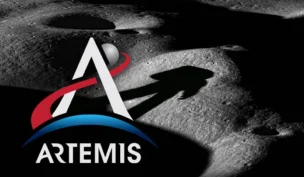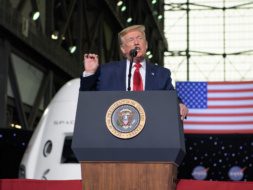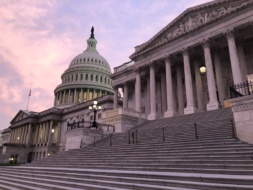It’s a common refrain at space events of all shapes and sizes: satellites enabled the GPS that helped your Uber find its way here.
But what’s accepted among space insiders is not such common knowledge in the broader public, and the Chamber of Commerce is ramping up its space efforts to spread the word so everyone from government officials to those who work in industries like agriculture and insurance understand how space is woven into our daily lives.
New faces: John Neal became the chamber’s executive director for space policy in September, marking the first time the chamber had an employee focused on space full-time, instead of just working on the domain on the side, he said.
Some efforts he’s watching for the rest of 2023 include:
- The NDAA, which includes bill text on launch infrastructure and access to space
- The effort in Congress to reauthorize the NDAA
- The expiration of the moratorium on rulemaking regarding space tourism this fall
- Lawmakers’ consideration of the NASA authorization
He also said he’s thinking about broader space topics, like how to keep commercial airspace functioning as the space launch cadence ramps up, the future of commercial outposts in LEO after the ISS retires, and the efforts by the National Space Council to address mission authorization.
Learning curve: The chamber’s top goal is to educate people about all of the non-space industries where space is playing an increasingly important role. Neal also said the chamber is actively pushing for space to factor into the debate on legislation like the farm bill and the flood insurance bill, and noted that space was largely not addressed in the 2021 infrastructure bill.
“There’s a large segment of the population that’s very excited about Artemis or the shuttle back in the day, but they’re not engaged on a daily basis,” he said. “They’re not realizing that space is an invisible engine that powers a large part of the economy…We really want to tell more people that space really is in their community, it impacts their lives.”
Lawmakers, they’re just like us: This blind spot on just how ingrained space is in Americans’ daily lives extends to Capitol Hill as well, especially for lawmakers who don’t serve on the authorizing or appropriating committees that oversee space priorities. Neal specifically said space should be on the minds of members who serve on committees related to agriculture, financial services, homeland security, and transportation and infrastructure.
“To those members who aren’t engaged on space every day, it’s my job and the chamber’s job to find out where their interests are and tell them how the space industry is addressing that,” Neal said.
What’s next? In addition to the workshop on Thursday, the chamber is also hosting its Global Aerospace Summit in September. While space used to make up only a small fraction of the summit’s programming, this year’s two-day event will have a full day devoted to space.




